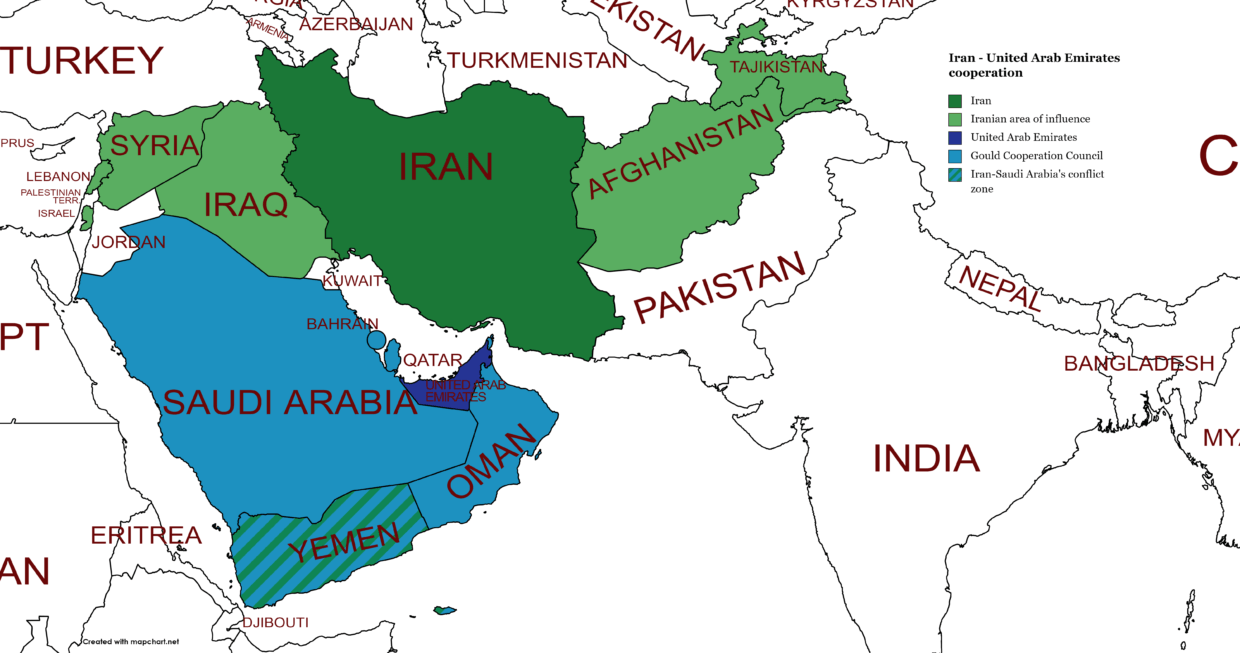Iran-UAE commercial trade will increase among regional tensions

Geopolitical Report ISSN 2785-2598 Volume 8 Issue 2
Author: Silvia Boltuc
Iran and the United Arab Emirates will expand their commercial trade, although Tehran’s foreign policy is a source of permanent concern to Abu Dhabi and the Gulf states.
According to the head of the Iran-United Arab Emirates Joint Chamber of Commerce, Farshid Farzanegan, trade between Iran and the United Arab Emirates (UAE) is expected to reach 20 billion dollars by March 2022.
Speaking at the opening ceremony of the UAE business directory booklet in Tehran, Farzanegan estimated current trade between Iran and the UAE at about 15 billion dollars and stated that both sides aim to increase trade to 30 billion dollars by 2025. According to Farzanegan, Iran has always been one of the leading suppliers of metal raw materials to the UAE, although trade in such products is between the two sides decreased due to sanctions. By contrast, the export of agricultural and food products to the Emirates was least affected by the sanctions and the coronavirus pandemic.
Even though Tehran has tried to attract foreign direct investments (FDIs) from the Emirates, Farzanegan highlighted that in recent years, due to the growing investment risks in Iran, the two parties have not been able to any joint actions.
The UAE is Iran’s leading trading partner in imports and the country’s third-largest export partner, indicating that many Iranian companies have put trade with the UAE on the agenda. The Emirates imports a variety of goods worth $ 260 billion a year and is known as the trade centre in the region, so Tehran is planning to expand the trade with Abu Dhabi.
Why does this matter?
Because the U.S. sanctions imposed in 2018 by Trump Administration have hugely affected the Iranian economy, pushing Tehran to find alternative solutions for its commercial trade opportunities and elaborating a different approach to regional issues. In this context, the UAE might play a decisive role in Tehran economic and foreign policy although the problematic relations between Iran and the Gulf states. Indeed, despite Iran represents a threat to the Emirates because of its occupation of three UAE islands, Tehran and Abu Dhabi have solid commercial links stressing their desire to cooperate and overcome those regional problems that might endanger bilateral relations.
